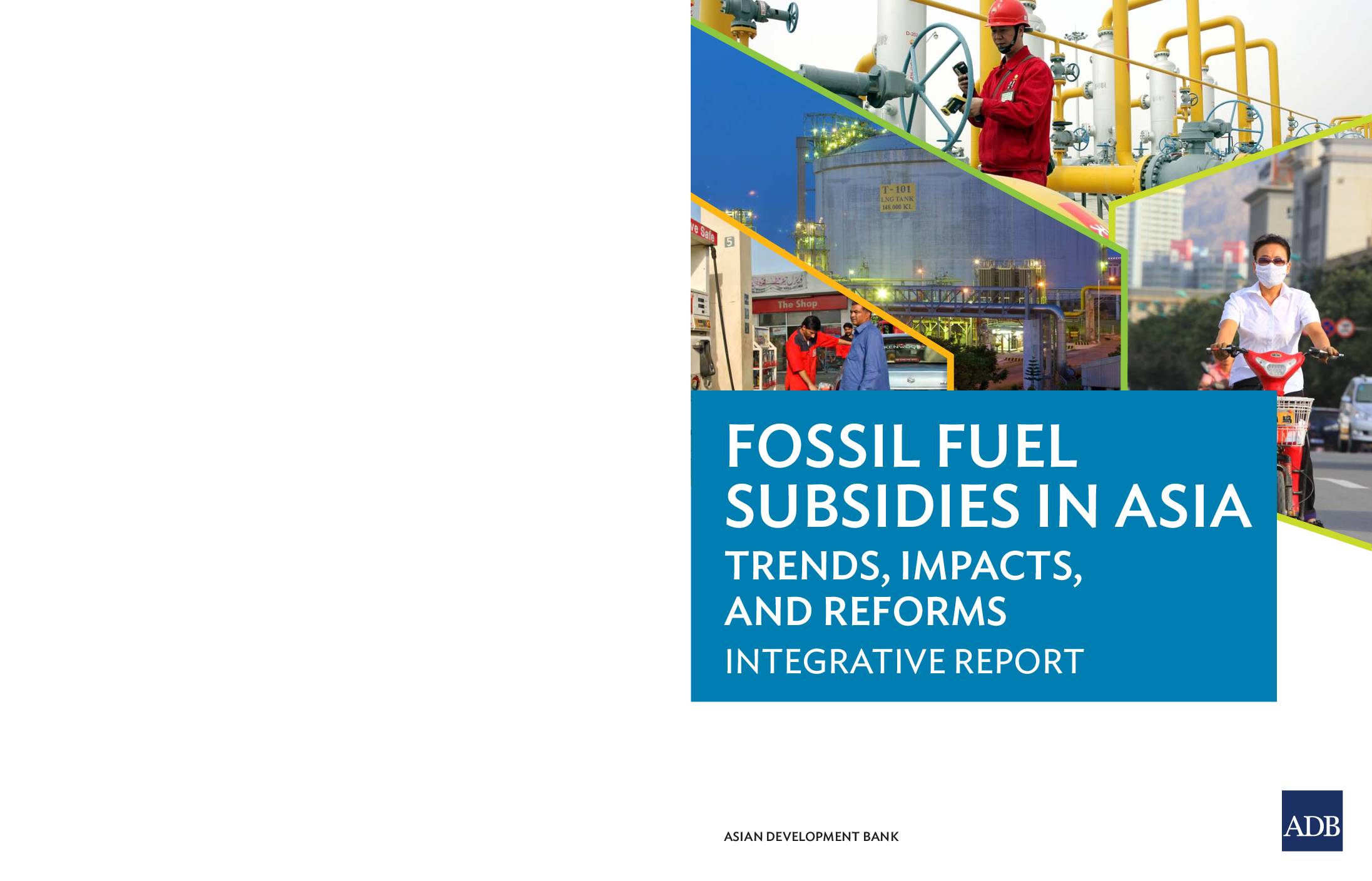Analysis suggests that reduction or removal of subsidies will encourage a shift to alternative fuels, make investment in clean energy attractive, increase energy supply, reduce energy shortages, and cut greenhouse gas emissions.
Unsustainable budgetary cost of selling oil, gas, and coal at low prices has propelled energy subsidy reform in developing Asian economies. This report measures the size of associated subsidies on these fossil fuels including direct transfers, tax exemptions, subsidized credit, and losses of state enterprises in India, Indonesia, and Thailand. An analysis of complex interactions between economic, social, energy, and environmental issues shows that the initial rise in energy prices due to a reduction or removal of the subsidies will nudge households and businesses to shift to alternative fuels, make investment in clean energy attractive, increase energy supply, reduce energy shortages, and cut greenhouse gas emissions. Using the money freed up from subsidies to compensate poor households and to increase government budgets will offset the negative effects of the initial price rise, promote sustainable energy use, and help allay the fears of reform.
Share this

Sectors: Industry, Power sector, Transport
Country / Region: Asia, India, Indonesia, Philippines, Thailand
Tags: alternative fuels, clean energies, cleaning, climate friendly government subsidies, corporate reporting, economic cost, energy, energy supply, fossil energy, greenhouse gas emissions, impacts on systems and sectors, subsidies, subsidies for fossil fuels, tax exemptions, taxes, taxes and leviesKnowledge Object: Publication / Report
Published by: Asian Development Bank
Publishing year: 2016
Author: Asian Development Bank
